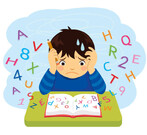This term we have had many families looking for support for their tamariki and rangatahi as they return to school, change schools or go to school for the first time. This time of transition can come with many challenges, and even more so this year as we continue to experience the impacts of covid on school life. See blog post for resources on how to help your tamariki with transitions back to school. ~ Susi King, Te Whai Occupational Therapist
It's common for kids to fall apart before they leave for school or when they come home.
- Home and whanau usually represent a safe space to let it all out.
- New Learning and keeping it together all day can be stressful.
- Kids are able to learn coping skills to deal with school stress, but they do need to be practiced at a time and place when they are feeling calm, safe and secure.
Why do melt downs happen?
Our tamariki’s brains are still developing. For many kids the school day is exhausting. It’s full of A LOT of sensory information, trying hard to sit still, pay attention, stay focused, distractions, rules to be followed, thinking, processing, new learning, managing personal belongings, managing social interactions and understanding other peoples’ unpredictable emotions. Some children are more sensitive than others. Some are more disorganised. Some may be struggling with learning. This can be incredibly overwhelming for developing brains and what we see as a meltdown is actually the brain and body dys-regulating. This is not a function that we have conscious control over.
Self control is difficult to maintain when your brain is over loaded, stressed and working hard to process and make sense of all that information. The school day is busy, noisy, fast and unpredictable. The school environment is confusing and much more intimidating when you are the smallest or youngest among a sea of bigger kids and adults and towering walls. Kids do not have control over their day at school. Kids don't always have the self-control and coping skills to manage this stress.
Think about how it may be easier to eat healthy for breakfast and lunch, but by the end of the night you may reach for the snack foods because your self-control is harder to maintain. Think about how you may find it easier to navigate your way around busy city traffic when you are well rested, fresh and alert, but by the end of a busy, noisy, demanding day you may be more likely to take a wrong turn, toot the horn, experience road rage or have a full blown meltdown.
Transitions can put stress on children. The transition from nurturing and free play home to structured school day and back again can be hard. Children have to work hard to “hold it all together” during the structured school day, and the transition to and from a less structured play time at home can be challenging.
WHAT CAN I DO?
- Understand that self control gets depleted during the day. Offer support not criticism of “why are you like this at home”. A sensitive child can be aware of even just the thought of this without it being spoken aloud.
- Have familiar and anticipatable pickup and drop off routines. Keeping to similar time frames and patterns is useful in the early days. Use the same words at pick up or drop off. A simple rhyme or special handshake can be useful.
- Practice transitions: Some children don’t know how to transition and might need coaching on how we will say goodbye, what will happen when I pick you up after school etc. Keep it consistent to begin with. Practice this without other people around and without all the distractions. A social story or picture book can help.
- Give an after school snack and drink. Kids get “hangry”, or sometimes just need oral motor stimulation in order to regulate.
- Offer silence. Leave the questions about school for later. Asking them to recall the events of the day activates the sympathetic nervous system and requires cognitive processing. Try silence, or singing or silly rhymes. If they want to chat, then talk about the here and now or in the future or encourage creative thoughts, which encourage parasympathetic activation.
- Offer time and space for the child to unwind and transition after the school day. This could include a space with lowered lighting, relaxing music, a healthy snack, gentle rocking or swinging, a favourite cuddly thing, weighted blanket, fidget toys etc.
- Utilise calming strategies such as swinging, bouncing, riding a bike or scooter, outdoor play, arts/crafts, activities that offer deep pressure or head inversions, oral motor input such as chewing resistive crunchy foods, sucking, licking, blowing, breathing, singing, whistling etc.
- Name it to tame it: Encourage children to express their feelings. Ideally children need to be able to express their feelings when they are feeling them, not just at home. Sometimes the build of an uncomfortable feeling that has occurred during the day but doesnt have a chance to come out until safely at home can have a snowball effect. Other times it’s hard to find the words to describe the feeling.
- Kids may not yet know how to express their feelings. It may be hard to find the words, or recognise the feeling enough to describe it. Kids need emotion coaching. Adults labeling their own feelings can help. Our children see adults' emotional expressions, far more than they see themselves. Giving children emotional literacy starts with adults modeling it. Emotions can be abstract and they need explaining. Try narrating the emotions of characters in TV shows, movies and books. Sometimes it’s easier to start with learning to label the physical feelings and sensations in our bodies. This also helps get the mind into “the here and now”, and activates the parasympathetic system.
- Teach children strategies for calming themselves down, when they are feeling calm. These skills need to be practiced over and over again, before they become of use in a stressed situation.
- Put in place organisational structures and routines at home. Morning and afternoon routine lists with pictures, use timers, make a place for bags, belongings, etc.
- Pick up on patterns of behaviour, triggers or warning signs.
- Speak with teachers. Let them know what you are seeing at home Ask teachers to keep an eye out for signs of stress and offer strategies. Share the strategies that are useful.




